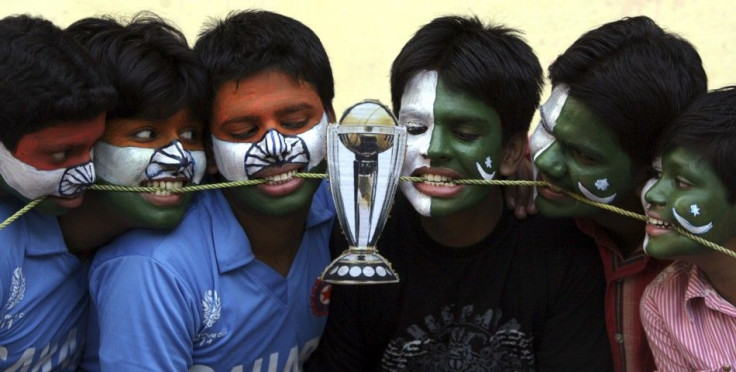India-Pakistan talk peace ahead of much anticipated cricket semifinal

South Asian rivals India and Pakistan are engaging in their first high-level peace talks since the terrorist attacks in Mumbai in 2008, ahead of a much-anticipated World Cup cricket match next week.
The Pakistani Interior Secretary Qamaruz Zaman Chaudhry is meeting his Indian counterpart, GK Pillai, in New Delhi, for a two-day summit in an effort to improve relations between the nuclear giants who have waged four wars since the partition of 1947 divided British India into Muslim Pakistan and Hindu India.
The entire country [Pakistan] has appreciated this gesture,” Chaudhry said, referring to Singh’s invitation.
Such efforts between the two sides would enhance peaceful relations and promote people-to-people contact, Chaudhry told reporters.
The attacks in Mumbai three years ago killed more than 170 people and ruptured diplomatic ties between the two countries. India has blamed the massacre on terrorists trained in Pakistan.
The current talks are expected to lay the groundwork for more extensive ministerial discussions in July, which will also include talks on the vexing problem of Kashmir (claimed by both India and Pakistan), as well as terrorism and trade issues.
The Mumbai attacks themselves will be discussed at the peace talks. Reportedly, India will complain that Pakistan is not serious about fighting terrorism. (Pakistan has partially conceded, however, that the terrorist attack was planned on its soil).
Looming above the peace talks is the little matter of Wednesday’s semi-final World Cup cricket match in the northern Indian city of Mohali – to which India’s Prime Minister Manmohan Singh has already invited his Pakistani counterpart Yousuf Raza Gilani.
Also, as a goodwill gesture ahead of the cricket match, the president of Pakistan, Asif Ali Zardari, said he will free Gopal Das, an Indian national who has been locked up in a Pakistani prison for 27 years on charges of espionage.
Some Pakistanis, however, do not expect much from these meetings and believe that India’s Prime Minister Singh is using the peace talks and the upcoming cricket match as a diversion from the wave of corruption scandals that have ravaged his ruling Congress Party and led to calls by the Indian opposition for his resignation.
If the Indians have invited the prime minister and the president, there is no harm in going there, because this is a gesture, said Ejaz Haider, a Pakistani political analyst, according to Al Jazeera.
But this gesture in itself is not going to result in any breakthrough in substantial terms.
On the Indian side, they have never felt that speaking to Pakistan’s civilian rulers meant much since they have long been dominated and shadowed by military generals who engineer the actual foreign policy.
However, if Singh can somehow establish a lasting peace with Pakistan, his legacy would be secure and would also overshadow the corruption scandals he has endured.
© Copyright IBTimes 2025. All rights reserved.





















